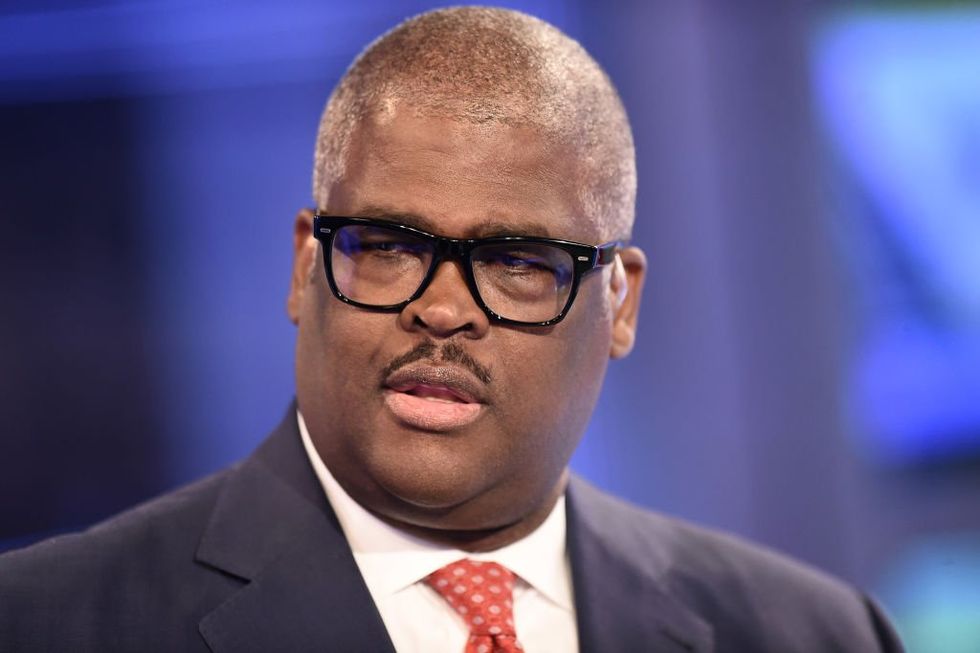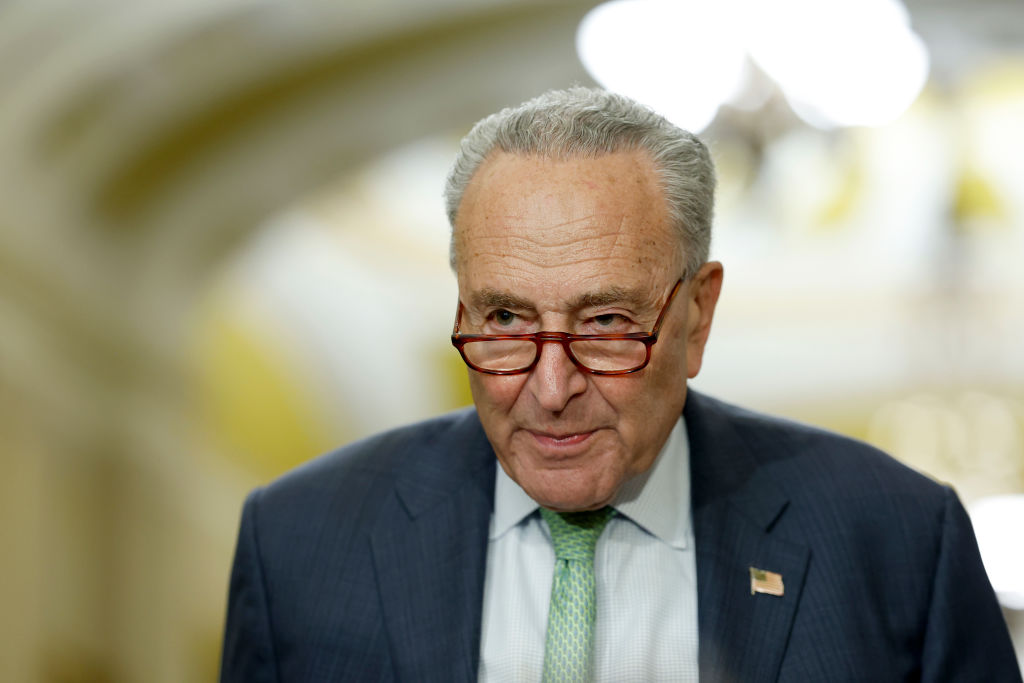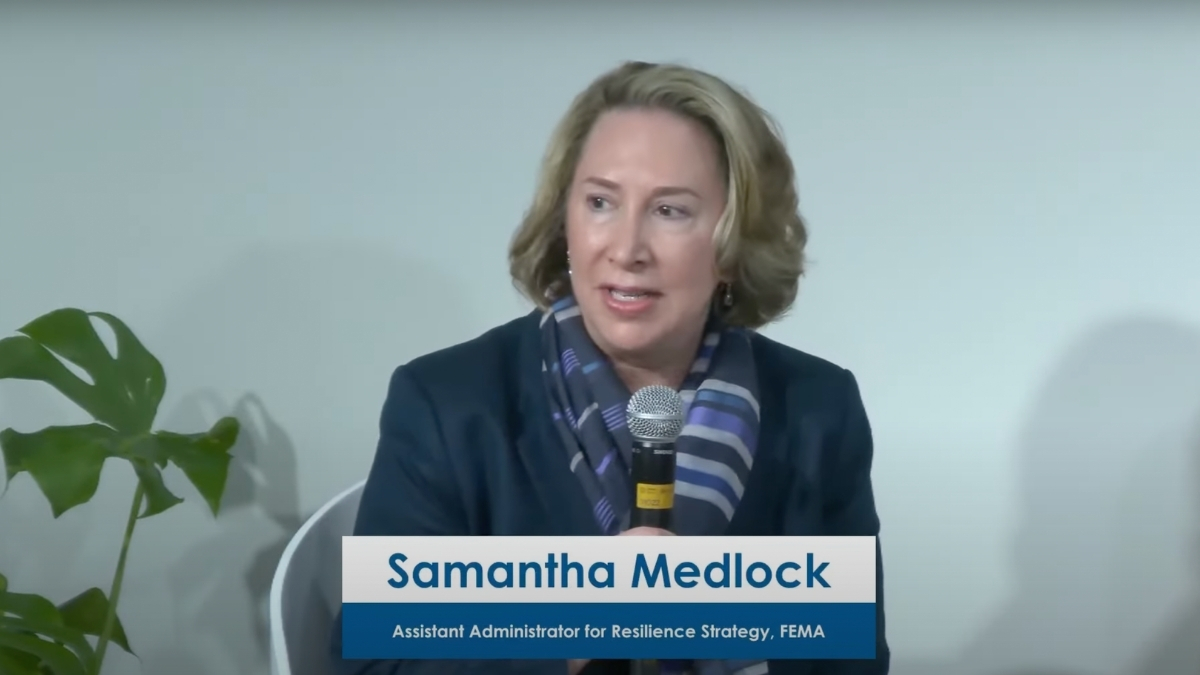Trump could make Biden’s EV mandates obsolete, revamp industry with 1 move
'I think it’s pretty clear that consumers still want to buy internal combustion vehicles'


![]()

President-elect Donald Trump’s return to the White House could mean an overhaul of current electric vehicle (EV) regulations and other sweeping changes for the U.S. automotive industry, experts who spoke with the Daily Caller News Foundation claimed.
The incoming Trump administration could potentially scale back President Joe Biden’s regulatory agenda to electrify vehicles, bolster auto manufacturers around the country and drastically increase tariffs on imported vehicles, experts told the DCNF. On the campaign trail, Trump raised concerns of a “bloodbath” for the auto industry if he was not reelected, and proposed various auto-related initiatives, including a promise to “revolutionize” the auto industry and make interest on car loans fully tax deductible in a push to boost domestic auto production.
One potential change that could effectively make the Biden Administration’s current gas-powered vehicle regulations obsolete would be to determine that regulatory agencies do not have the legal authority to push the electrification of vehicles.
“The Trump administration’s Environmental Protection Agency (EPA) could make a determination that the EPA has no authority under the Clean Air Act to mandate – to force – the electrification of the U.S. automobile fleet,” Marlo Lewis, senior fellow at the Competitive Enterprise Institute, told the DCNF.
“The Biden administration set greenhouse gas emission standards, which are really just de facto fuel economy standards, that are so stringent that automobile manufacturers cannot meet those standards unless they phase out sales of internal combustion engine vehicles and increase sales of electric vehicles,” Lewis added.
The Biden-Harris administration has spearheaded an effort to increase the adoption of EVs nationwide as part of Biden’s signature climate agenda. The president introduced strict tailpipe emissions standards in March that would require about 67% of all light-duty vehicles sold after 2032 to be EVs or hybrids, and also vowed to build 500,000 public EV chargers nationwide by 2030, although the initiative has thus far been significantly delayed.
The president-elect vowed to repeal the Biden administration’s EV measures in October 2023, calling them “insane.” Trump’s transition team is reportedly planning to end Biden’s $7,500 consumer tax credit for EV purchases, according to Reuters.
Another individual who could potentially roll back regulations on gas-powered vehicles is former Republican New York Rep. Lee Zeldin, who Trump appointed as EPA Administrator on Nov. 11. Zeldin said in a post to X that he plans to “revitalize our auto industry to bring back American jobs.”
“Just in terms of the spirit of how regulations work, one thing that I think is worth noting about the Biden administration’s approach to these regulations is it is pretty coercive,” James Meigs, a senior fellow of the Manhattan Institute, told the DCNF. “They would never say ‘oh we want to ban gasoline cars,’ or most of them would not come out and say that. But the emission standards that the EPA and Department of Transportation put through is effectively an attempt to partially ban the internal combustion engine, and I find it a problem when parts of the White House believe in the policy but they don’t want to talk about the policy honestly with the American people.”
“I don’t think that people realize that the Biden administration was imposing various policies that really impact the individual consumer, but not really leveling with us about what they were doing,” Meigs added. “I think that’s maybe one very small element that led to the way that this presidential race turned out. We don’t know what Trump’s policy is gonna be, but my impression is it will be at least somewhat more transparent.”
Many major automakers have taken considerable losses on EV lines over the past four years, leading some companies to enact sweeping layoffs. Ford lost $1.2 billion on EVs in the third quarter of this year, and General Motors reported in January a $1.7 billion loss on its EV line in its fourth quarter, despite having positive net income growth for that quarter. Toyota’s North American COO Jack Hollis criticized U.S. policies promoting the adoption of EVs on Nov. 8, citing them as “impossible” to meet.
The president-elect has proposed increasing tariffs on various imported goods, causing some American companies to speed up shifting production out of other countries, such as China and Mexico. Trump said in September that he would impose a 200% tariff on John Deere’s products if it closed an American factory and moved production outside of the U.S. to Mexico.
“I think it’s pretty clear that consumers still want to buy internal combustion vehicles,” Lewis told the DCNF. “If we just let our automakers compete in order to satisfy our consumers, we wouldn’t have to worry about competing with China over electric vehicles, because that’s not what most Americans want. If over time Americans actually do want electric vehicles, our own automakers will have figured out ways of doing it to go toe-to-toe with China. That’s why you have both Trump and Biden talking about putting tariffs on Chinese imports.”
This would not be the first time that Trump has enacted tariffs to push the domestic manufacturing of goods. Trump imposed various tariffs on China during his first term, which raised the price of incoming goods from the country.
“There are already a lot of restrictions on China’s ability to export EVs to the U.S., so I don’t think it will have a giant impact on China, but it could have a big impact on Volkswagen and BMW and other companies in Europe that are making EVs and exporting them to the U.S.,” Meigs told the DCNF. “It’s not a huge number of vehicles right now, but I know those companies will certainly be interested in building that part of their market. Some of the automaker stock prices fell in Europe after Trump was elected out of the fear that it would affect their imports, not just with EVs but possibly with all cars. This could all be good for Tesla, which is the leading EV maker in the country, so good for Elon Musk.”
Tesla CEO Elon Musk endorsed Trump in July, and has since become a top supporter of Trump. The president-elect announced on Nov. 12 that he is appointing Musk and Vivek Ramaswamy to head a new Department of Government Efficiency.
“The American people re-elected President Trump by a resounding margin giving him a mandate to implement the promises he made on the campaign trail,” Trump-Vance Transition Spokeswoman Karoline Leavitt said in a statement shared with the DCNF. “He will deliver.”
This story originally was published by the Daily Caller News Foundation.
Content created by The Daily Caller News Foundation is available without charge to any eligible news publisher that can provide a large audience. For licensing opportunities of our original content, please contact [email protected].
SUPPORT TRUTHFUL JOURNALISM. MAKE A DONATION TO THE NONPROFIT WND NEWS CENTER. THANK YOU!
What's Your Reaction?

































































































